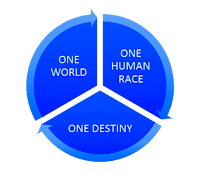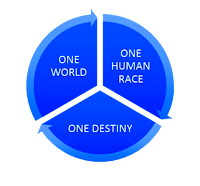UNITED KINGDOM'S BLACKLIVESMATTERS - HOW APPLICABLE?
So, some people in the United Kingdom think it is a good idea to have a BlackLivesMatters movement, a development which is no more that a copying of the BlackLivesMatters movement in the United States of America.
The first reaction of many British people is likely to be one of, Why? Why do some Black British people think it would be a good idea that Britain needs such a movement? What would they hope to achieve from having a campaign to tell the British people that 'BlackLivesMatters', when it is so obvious that it does? And yes, with the corollary that 'AllLivesMatters', as they do?
The advocates of BlackLivesMatters, in the United Kingdom, could, accurately cite the fact that, compared with their percentage of the general population, the lives of more black people than white people, have probably been lost as a result of the poorer treatment they have received from the police, the judiciary and the penal system.
They could also cite the fact that, using deprivational indices such educational outcomes, housing, employment, mental health, conviction and incarceration rates, black people in Britain, proportional, are doing worse than the general white population.
However, it would be wrong to just categorise these problems as just being a matter of black versus white, and as white people are doing better than black people. It is a fact that, if we use the category of 'black and ethnic minority communities', instead of the generic term of black, which some people of African, West Indian and Asian origins do not acknowledge as including people from East Asia, such as Pakistani, Indian and Bangladesh, we are confronted with a much more complicated situation. For example, some people whose origins goes back to India or East Africa, can be seen to be doing better, academically, than white Britons.
Each landscape or habitat influences, if not determines the problems associated with it, and the solutions which are more likely to be successful in resolving them.
The situation becomes even more complex with we consider the impact of visibly black Britons who come from or whose origins are rooted in, say, Somalia, Ethiopia, Afghanistan, Pakistan, Bangladesh, India, et al. When anybody speaks of 'black people' now, they really need to think hard about what they meant by that reference, and what other 'black people' might mean by it. It might make more sense to use the term, in many cases, in its political context, rather than in the context 'black Britons' having a common perception of themselves as one people with a shared history and cultural heritage, travelling on the same journey towards a common goal and destiny.
This takes me back to the validity of having, let us say, having British chapter of BLM. It seems to me that this ill-thoughtout copying of what has been intrinsically a movement which is rooted in the centuries of institutional oppression of the African-American, is very wrong, It could detract from and devalues the authenticity of the African-American experience of being killed and discriminated against, on a level which is clearly not similar to the Black British experience.
'Black' people are more complicated and complex than their physical characteristic. Where they are 'coming from', is more critical than their shade of melanin.
The British Judiciary and the police is racist, but, I would contend, not to the extent that the American system is. For a start, you do not have the British police going around killing black Britons on the scale which has become the norm in the United States. It would be wrong to given the impression that what might be feared for the future, is already occurring.
The United Kingdom, like every country, needs to have vibrant progressive movements campaigning to improve the conditions of all its people. Jumping on the apparently convenient bandwaggon of 'racialising' the strategy for battling even problems of racial inequalities, is not necessarily the best approach.
Like ducks in water, we humans need to learn to thrive in our sea of humanity, and pursue collective solutions to our common problems.
The most successful approach towards resolving problems of racism and social and political injustice, is still that of getting people of all ethnic groups become more deeply in touch with their basic humanity and use it as their motivator to fight for a better world. The emphasis, in my view, is not about them being primarily motivated by their perception of being 'black' and 'victim' or being 'white' and 'oppressor.'
So, not, I fail to see the relevance or positivity of having a UKBLM in Britain. I see it as infantilistic politics, which can only provide a limited platform for its advocates, and also place them at risk of being burnt by it.
Things are not always what we perceive them to be. Attempting to transplant the Black American response to centuries of racial oppression, onto the British landscape is unlikely to prove successful.










Comments